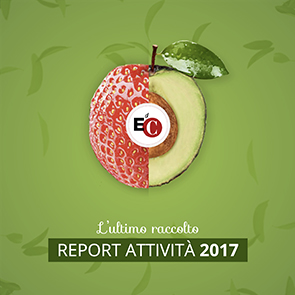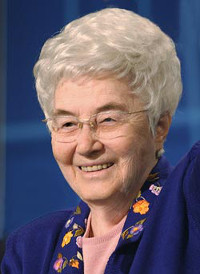In connection with the last EoC Global Gathering on 1 June, Domingos Dirceu Franco, a Brazilian focolarino, told us what the AMU RESTARt project is all about and what impact it has had on the tormented populations of Syria
My name is Domingos, I am a Brazilian economist, and I have been living outside of Brazil for 19 years now. I have been living mainly in Jordan and Syria; until two months ago I lived in Aleppo, where I spent five years; now I am temporarily staying in Italy. Before the war, people lived very well in Syria, but after 13 years of conflict, due to the inhuman economic embargoes imposed on the country, it has not yet been possible to rebuild everything that the war destroyed. Today in Syria 90% of the people live below the poverty line, with 2 hours of electricity per day; there is a lack of petrol, diesel, gas, and the average salary is €20 per month.
The local Focolare Movement, in collaboration with AMU and other international organisations, does significant social work in the fields of health, education, emergency and development. When I arrived in Syria in 2019, I already had experience in international planning and cooperation, so I started working with AMU to set up RESTARt, which is a microcredit programme. A few words about the programme's methodology and some of the achieved results: our beneficiaries do not receive money, but equipment they need to start their own businesses.
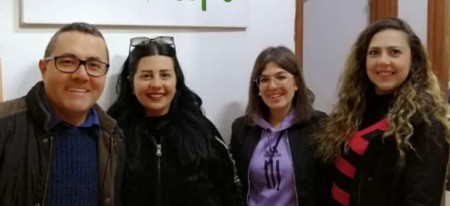 After a feasibility study and a training on project management, communion and reciprocity, activities start. From that point on, people begin to pay back in cash, through fortnightly instalments, 50 per cent of what they receive in goods to start up their activities, while the remaining 50 per cent is paid in the form of services that these people undertake to offer to the community. In a dynamic of enlarged reciprocity, gratuitousness and communion, each person in charge of such a start-up willingly offers free - to make a few examples - training courses in their own field, or a job, so as to support those still in need and to spread the culture of communion.
After a feasibility study and a training on project management, communion and reciprocity, activities start. From that point on, people begin to pay back in cash, through fortnightly instalments, 50 per cent of what they receive in goods to start up their activities, while the remaining 50 per cent is paid in the form of services that these people undertake to offer to the community. In a dynamic of enlarged reciprocity, gratuitousness and communion, each person in charge of such a start-up willingly offers free - to make a few examples - training courses in their own field, or a job, so as to support those still in need and to spread the culture of communion.
The accompaniment and monitoring of each project is carried out every two weeks, which is an opportunity to offer technical and psycho-social support and to collect the experiences of reciprocity and communion that have been realised. One of the reasons for the success of RESTARt lies in the continuous accompaniment that generates proximity and trust between all stakeholders involved.
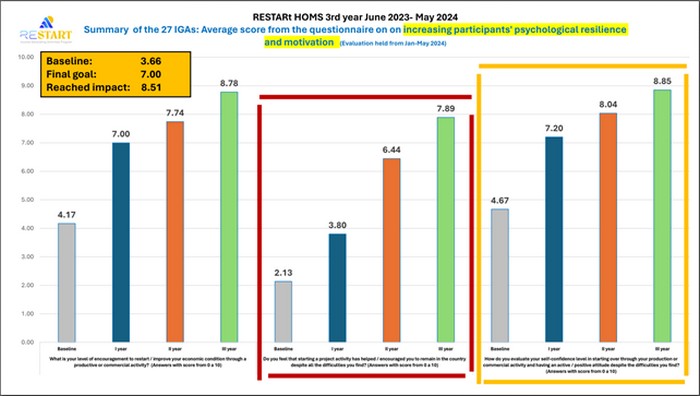 In three years, we have implemented 83 micro-projects in three different cities, with a success rate of 90%, and there has been no delay in the payment of instalments for any project so far. In the next month, another 35 activities are going to start. The investment for each one is about €3,000, and part of this investment comes from the EoC, too.
In three years, we have implemented 83 micro-projects in three different cities, with a success rate of 90%, and there has been no delay in the payment of instalments for any project so far. In the next month, another 35 activities are going to start. The investment for each one is about €3,000, and part of this investment comes from the EoC, too.
We work with an evaluation system that focuses on the social impact in people's lives and not so much on the products offered. Let me present some of the results. On the psychosocial impact, using a scale of 0-10, we started from a baseline of 3.66 and aimed at reaching 7.00. In three years, we arrived at 8.51. I would like to highlight two points here: as for their self-confidence, assisted by the new start-ups, the average value rose from 4.67 before the project to 8.85 in three years. We also asked how much the start-up of their projects had motivated them not to leave the country. Their motivation to stay in Syria averaged 2.13, and after three years, the value rose to 7.89.
On the aspect of economic autonomy to meet daily needs, we started from an average baseline of 1.57 and aimed to reach 6.00. After three years, we arrived at 5.74.
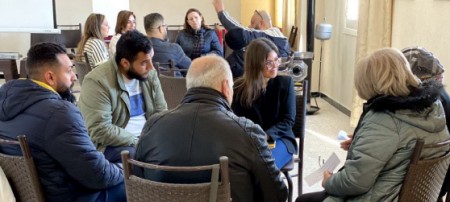 In this respect, the monthly economic income of the projects in Homs increased considerably in three years, from about EUR 36.00 to EUR 170.00 per month. Also in Homs, we evaluated the impact of RESTARt on people's ability to run a start-up more efficiently: we started from a baseline of 2.91 and had a target of 7.00. In three years, we arrived at 7.44.
In this respect, the monthly economic income of the projects in Homs increased considerably in three years, from about EUR 36.00 to EUR 170.00 per month. Also in Homs, we evaluated the impact of RESTARt on people's ability to run a start-up more efficiently: we started from a baseline of 2.91 and had a target of 7.00. In three years, we arrived at 7.44.
Another specific example from the Aleppo start-ups. Before the project, the beneficiaries ate meat an average of 1.35 times a month. After one year, this average has risen to 3.05.
We know that RESTARt is not a panacea (magic cure - the tr.), but in its very small potential, it is making an important impact, and we hope it can continue to contribute to the rebirth of a country that has been at war for 13 years: each of us can play our part in this reconstruction and rebirth.
See the testimony of RESTARt in the film made by the Vatican's Dicastery for Promoting Integral Human Development on the occasion of the World Day of Migrants and Refugees.

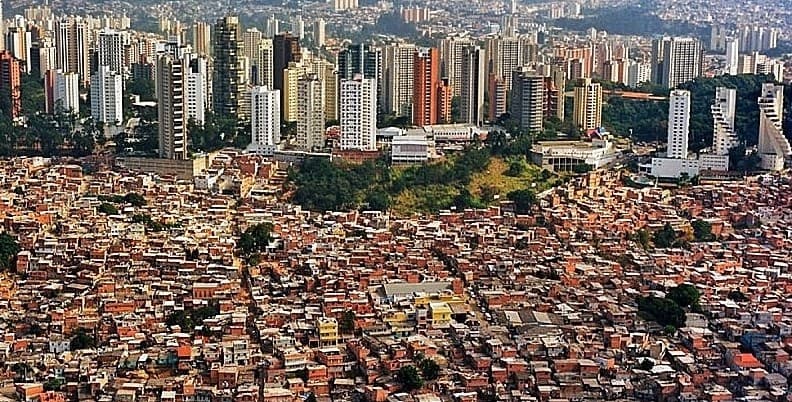
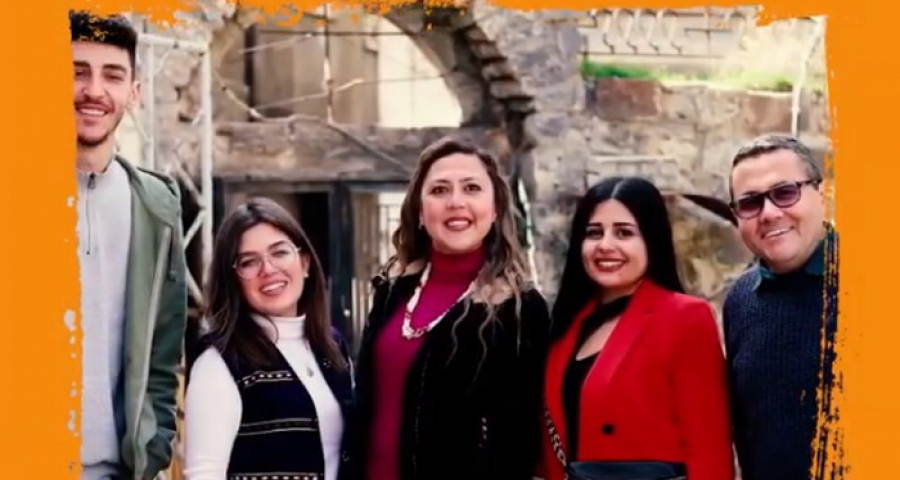
 After a feasibility study and a training on project management, communion and reciprocity, activities start. From that point on, people begin to pay back in cash, through fortnightly instalments, 50 per cent of what they receive in goods to start up their activities, while the remaining 50 per cent is paid in the form of services that these people undertake to offer to the community. In a dynamic of enlarged reciprocity, gratuitousness and communion, each person in charge of such a start-up willingly offers free - to make a few examples - training courses in their own field, or a job, so as to support those still in need and to spread the culture of communion.
After a feasibility study and a training on project management, communion and reciprocity, activities start. From that point on, people begin to pay back in cash, through fortnightly instalments, 50 per cent of what they receive in goods to start up their activities, while the remaining 50 per cent is paid in the form of services that these people undertake to offer to the community. In a dynamic of enlarged reciprocity, gratuitousness and communion, each person in charge of such a start-up willingly offers free - to make a few examples - training courses in their own field, or a job, so as to support those still in need and to spread the culture of communion. In three years, we have implemented 83 micro-projects in three different cities, with a success rate of 90%, and there has been no delay in the payment of instalments for any project so far. In the next month, another 35 activities are going to start. The investment for each one is about €3,000, and part of this investment comes from the EoC, too.
In three years, we have implemented 83 micro-projects in three different cities, with a success rate of 90%, and there has been no delay in the payment of instalments for any project so far. In the next month, another 35 activities are going to start. The investment for each one is about €3,000, and part of this investment comes from the EoC, too. In this respect, the monthly economic income of the projects in Homs increased considerably in three years, from about EUR 36.00 to EUR 170.00 per month. Also in Homs, we evaluated the impact of RESTARt on people's ability to run a start-up more efficiently: we started from a baseline of 2.91 and had a target of 7.00. In three years, we arrived at 7.44.
In this respect, the monthly economic income of the projects in Homs increased considerably in three years, from about EUR 36.00 to EUR 170.00 per month. Also in Homs, we evaluated the impact of RESTARt on people's ability to run a start-up more efficiently: we started from a baseline of 2.91 and had a target of 7.00. In three years, we arrived at 7.44.






